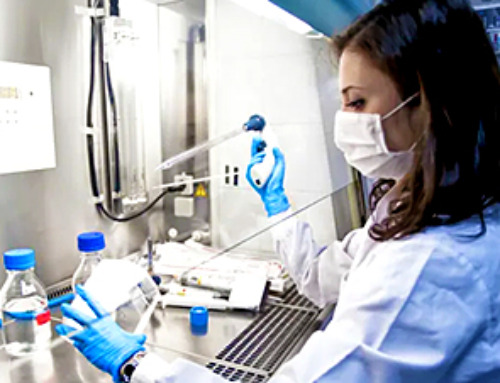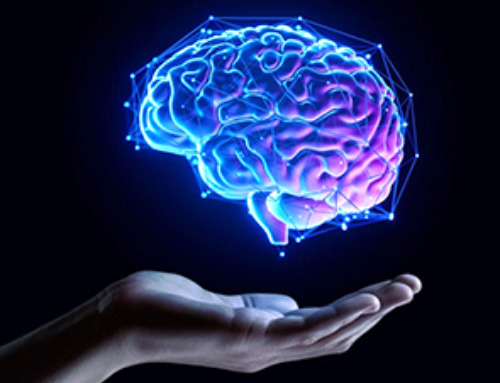The European Union will seek to thrash out an agreement on sweeping rules to regulate artificial intelligence on Wednesday, following months of difficult negotiations in particular on how to monitor generative AI applications like ChatGPT.
ChatGPT wowed with its ability to produce poems and essays within seconds from simple user prompts.
AI proponents say the technology will benefit humanity, transforming everything from work to health care, but others worry about the risks it poses to society, fearing it could thrust the world into unprecedented chaos.
Brussels is bent on bringing big tech to heel with a powerful legal armory to protect EU citizens’ rights, especially those covering privacy and data protection.
The European Commission, the EU’s executive arm, first proposed an AI law in 2021 that would regulate systems based on the level of risk they posed. For example, the greater the risk to citizens’ rights or health, the greater the systems’ obligations.
Negotiations on the final legal text began in June, but a fierce debate in recent weeks over how to regulate general-purpose AI like ChatGPT and Google’s Bard chatbot threatened talks at the last minute.
Negotiators from the European Parliament and EU member states began discussions on Wednesday and the talks were expected to last into the evening.
Some member states worry that too much regulation will stifle innovation and hurt the chances of producing European AI giants to challenge those in the United States, including ChatGPT’s creator OpenAI as well as tech titans like Google and Meta.
Although there is no real deadline, senior EU figures have repeatedly said the bloc must finalize the law before the end of 2023.
Chasing local champions
EU diplomats, industry sources and other EU officials have warned the talks could end without an agreement as stumbling blocks remain over key issues.
Others have suggested that even if there is a political agreement, several meetings will still be needed to hammer out the law’s technical details.
And should EU negotiators reach agreement, the law would not come into force until 2026 at the earliest.
The main sticking point is over how to regulate so-called foundation models—designed to perform a variety of tasks—with France, Germany and Italy calling to exclude them from the tougher parts of the law.
“France, Italy and Germany don’t want a regulation for these models,” said German MEP Axel Voss, who is a member of the special parliamentary committee on AI.
The parliament, however, believes it is “necessary… for transparency” to regulate such models, Voss said.
Late last month, the three biggest EU economies published a paper calling for an “innovation-friendly” approach for the law known as the AI Act.
Berlin, Paris and Rome do not want the law to include restrictive rules for foundation models, but instead say they should adhere to codes of conduct.
Many believe this change in view is motivated by their wish to avoid hindering the development of European champions—and perhaps to help companies such as France’s Mistral AI and Germany’s Aleph Alpha.
Another sticking point is remote biometric surveillance—basically, facial identification through camera data in public places.
The EU parliament wants a full ban on “real time” remote biometric identification systems, which member states oppose. The commission had initially proposed that there could be exemptions to find potential victims of crime including missing children.
There have been suggestions MEPs could concede on this point in exchange for concessions in other areas.
Brando Benifei, one of the MEPs leading negotiations for the parliament, said he saw a “willingness” by everyone to conclude talks.
But, he added, “we are not scared of walking away from a bad deal”.
France’s digital minister Jean-Noel Barrot said it was important to “have a good agreement” and suggested there should be no rush for an agreement at any cost.
“Many important points still need to be covered in a single night,” he added.
Concerns over AI’s impact and the need to supervise the technology are shared worldwide.
US President Joe Biden issued an executive order in October to regulate AI in a bid to mitigate the technology’s risks.
News
These two viruses may become the next public health threats, scientists say
Two emerging pathogens with animal origins—influenza D virus and canine coronavirus—have so far been quietly flying under the radar, but researchers warn conditions are ripe for the viruses to spread more widely among humans. [...]
COVID-19 viral fragments shown to target and kill specific immune cells
COVID-19 viral fragments shown to target and kill specific immune cells in UCLA-led study Clues about extreme cases and omicron’s effects come from a cross-disciplinary international research team New research shows that after the [...]
Smaller Than a Grain of Salt: Engineers Create the World’s Tiniest Wireless Brain Implant
A salt-grain-sized neural implant can record and transmit brain activity wirelessly for extended periods. Researchers at Cornell University, working with collaborators, have created an extremely small neural implant that can sit on a grain of [...]
Scientists Develop a New Way To See Inside the Human Body Using 3D Color Imaging
A newly developed imaging method blends ultrasound and photoacoustics to capture both tissue structure and blood-vessel function in 3D. By blending two powerful imaging methods, researchers from Caltech and USC have developed a new way to [...]
Brain waves could help paralyzed patients move again
People with spinal cord injuries often lose the ability to move their arms or legs. In many cases, the nerves in the limbs remain healthy, and the brain continues to function normally. The loss of [...]
Scientists Discover a New “Cleanup Hub” Inside the Human Brain
A newly identified lymphatic drainage pathway along the middle meningeal artery reveals how the human brain clears waste. How does the brain clear away waste? This task is handled by the brain’s lymphatic drainage [...]
New Drug Slashes Dangerous Blood Fats by Nearly 40% in First Human Trial
Scientists have found a way to fine-tune a central fat-control pathway in the liver, reducing harmful blood triglycerides while preserving beneficial cholesterol functions. When we eat, the body turns surplus calories into molecules called [...]
A Simple Brain Scan May Help Restore Movement After Paralysis
A brain cap and smart algorithms may one day help paralyzed patients turn thought into movement—no surgery required. People with spinal cord injuries often experience partial or complete loss of movement in their arms [...]
Plant Discovery Could Transform How Medicines Are Made
Scientists have uncovered an unexpected way plants make powerful chemicals, revealing hidden biological connections that could transform how medicines are discovered and produced. Plants produce protective chemicals called alkaloids as part of their natural [...]
Scientists Develop IV Therapy That Repairs the Brain After Stroke
New nanomaterial passes the blood-brain barrier to reduce damaging inflammation after the most common form of stroke. When someone experiences a stroke, doctors must quickly restore blood flow to the brain to prevent death. [...]
Analyzing Darwin’s specimens without opening 200-year-old jars
Scientists have successfully analyzed Charles Darwin's original specimens from his HMS Beagle voyage (1831 to 1836) to the Galapagos Islands. Remarkably, the specimens have been analyzed without opening their 200-year-old preservation jars. Examining 46 [...]
Scientists discover natural ‘brake’ that could stop harmful inflammation
Researchers at University College London (UCL) have uncovered a key mechanism that helps the body switch off inflammation—a breakthrough that could lead to new treatments for chronic diseases affecting millions worldwide. Inflammation is the [...]
A Forgotten Molecule Could Revive Failing Antifungal Drugs and Save Millions of Lives
Scientists have uncovered a way to make existing antifungal drugs work again against deadly, drug-resistant fungi. Fungal infections claim millions of lives worldwide each year, and current medical treatments are failing to keep pace. [...]
Scientists Trap Thyme’s Healing Power in Tiny Capsules
A new micro-encapsulation breakthrough could turn thyme’s powerful health benefits into safer, smarter nanodoses. Thyme extract is often praised for its wide range of health benefits, giving it a reputation as a natural medicinal [...]
Scientists Develop Spray-On Powder That Instantly Seals Life-Threatening Wounds
KAIST scientists have created a fast-acting, stable powder hemostat that stops bleeding in one second and could significantly improve survival in combat and emergency medicine. Severe blood loss remains the primary cause of death from [...]
Oceans Are Struggling To Absorb Carbon As Microplastics Flood Their Waters
New research points to an unexpected way plastic pollution may be influencing Earth’s climate system. A recent study suggests that microscopic plastic pollution is reducing the ocean’s capacity to take in carbon dioxide, a [...]





















